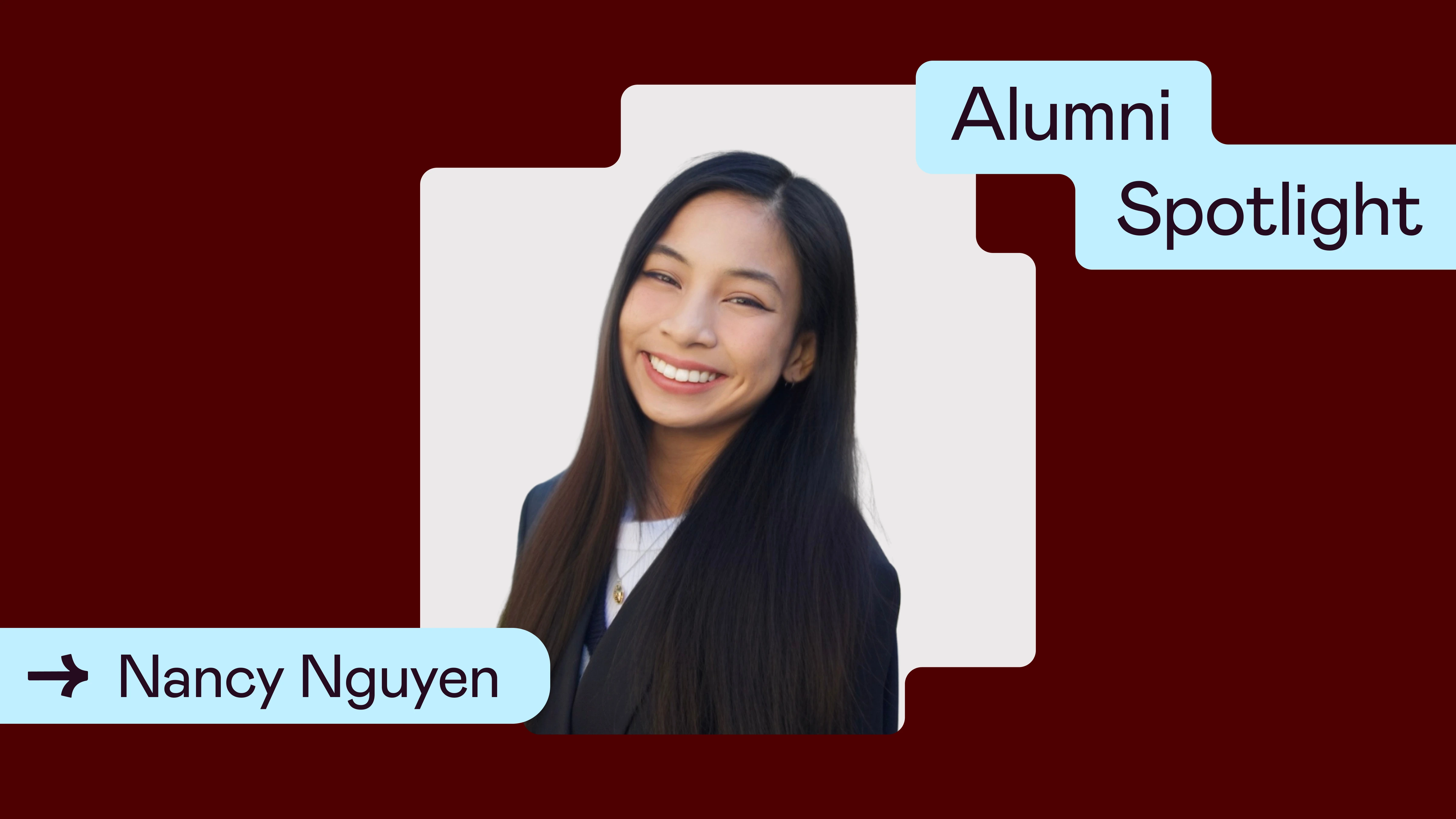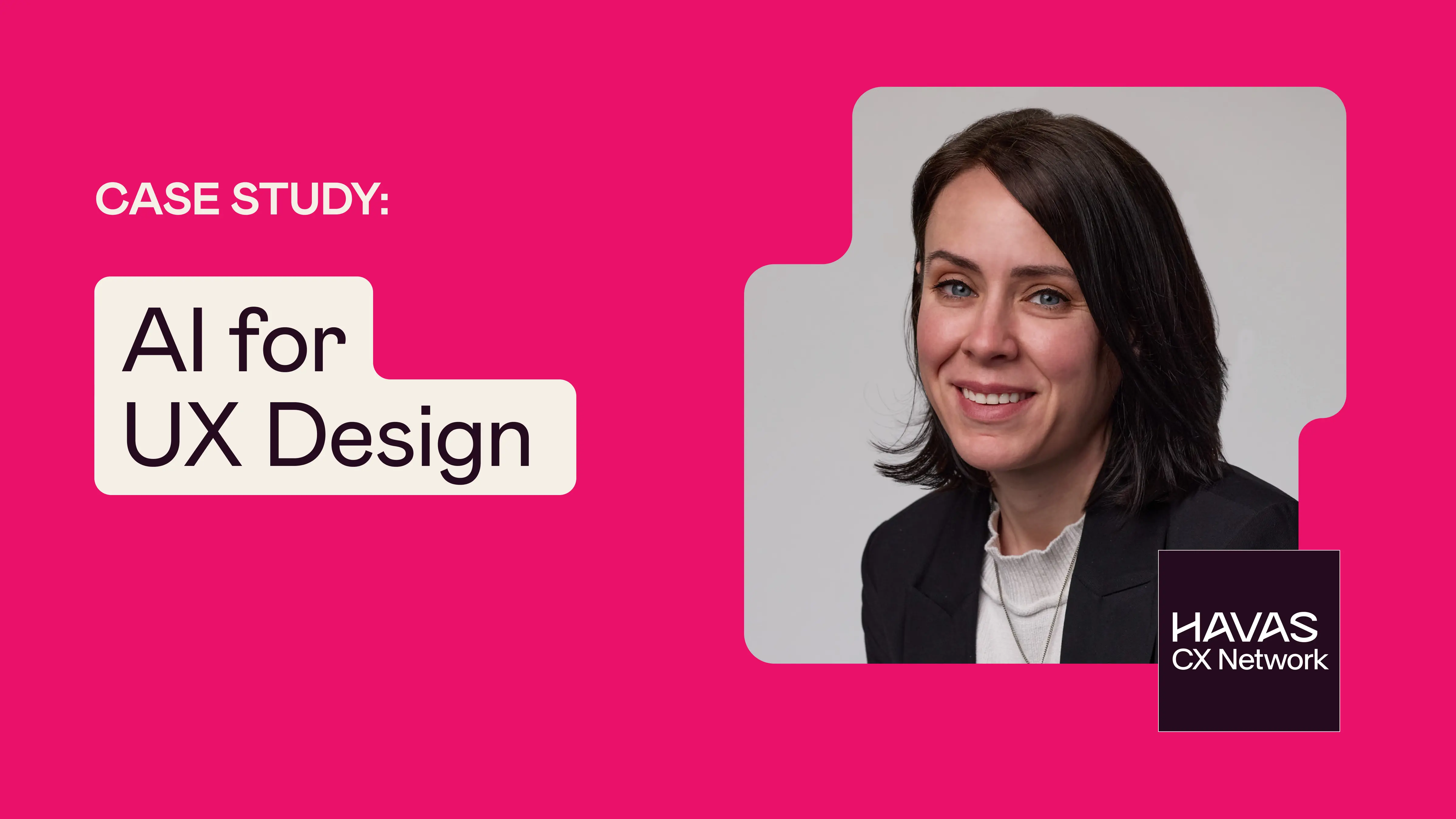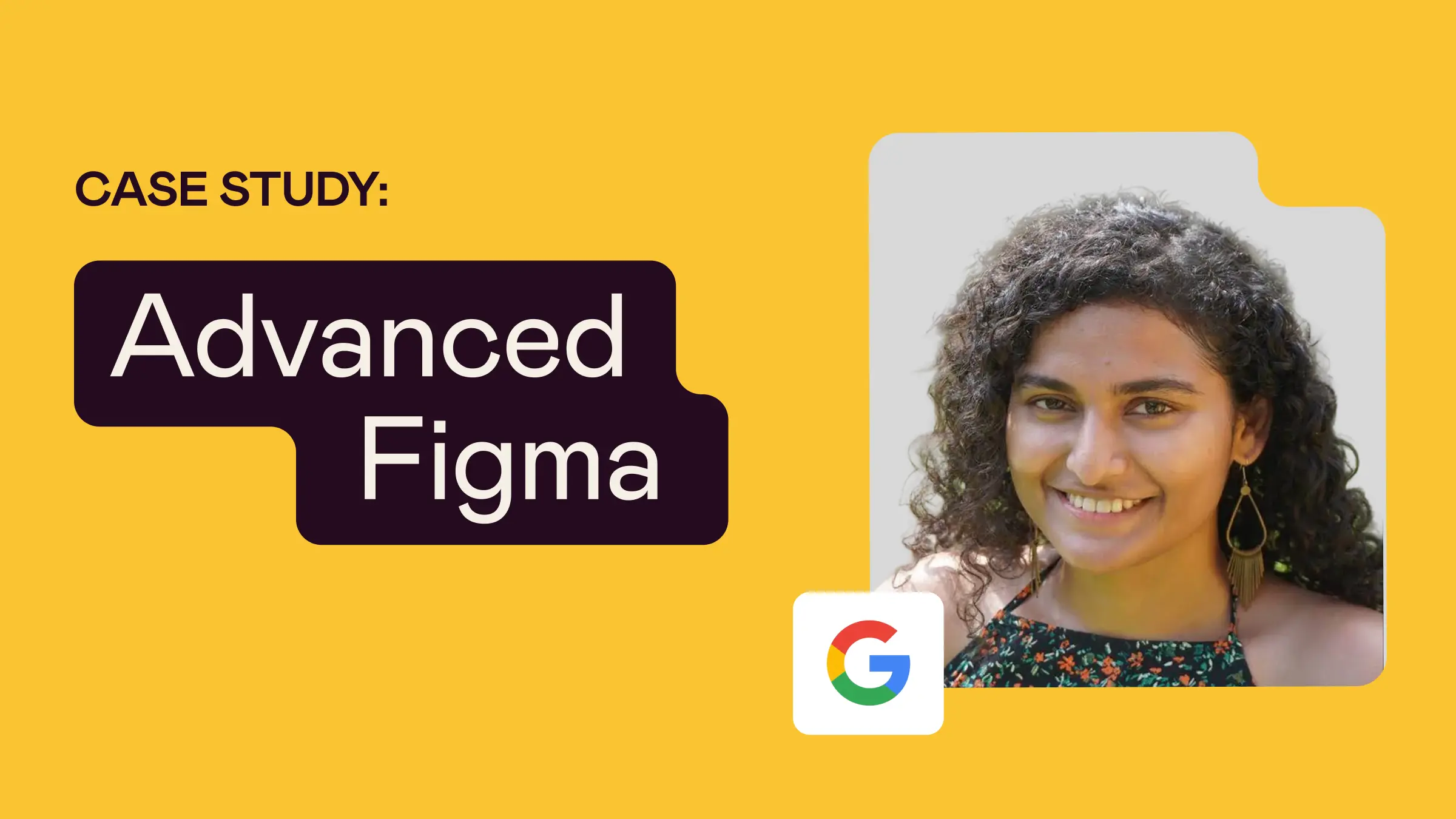We recently caught up with UX Academy alumni Niya Watkins to learn more about her journey into product design. Not only has Niya built a successful career in UX, she’s also returned to Designlab as a mentor to help support the next generation of UX/UI designers.
Niya shares her experience as a designer, discusses how mentoring is also helping her learn and grow, and gives some advice for those who may be considering a career change themselves.
Note: This interview has been slightly edited for clarity and context.
I would love to just hear a little bit about your journey as a designer! How did you end up getting into UX?
So currently, I'm a Senior Product Designer at The Atlantic, and I do a lot of things for them. Right now I'm focused on mobile app and audio experiences, and finding new features that can improve the app experience. But originally, I was in international affairs. I was working at the Department of State, and I wanted to be a foreign service officer, but once I started, it just wasn't for me.
It felt kind of chaotic at the time, trying to figure out what I could do because my skills were so focused on international affairs. And then through a family friend, I discovered UX Design. I had minored in anthropology, and I kind of thought that I would have more of an opportunity to engage with people in my role. So when I started looking into UX design, I was like, “oh my gosh, it combines two things I really love but have just never considered doing professionally.”
I didn't have any design background, but I did yearbook in high school, stuff like that. And then the user research part of it tied into anthropology, which I had always really liked. I can't really explain what prompted me to just quit my job and do this bootcamp, but I was like, “yeah, something needs to change.”
How was your experience, coming through UX Academy?
I did the program in 2018, and it was great. My mentor was pretty intense, which was a little nerve wracking at first, but looking back, he really challenged me to produce the best work I could. I learned so much from him, and now I seek out that type of mentorship where I feel like I'm being challenged and my mentors are being very detail oriented. I feel like that helps me just be the best version of myself.
I also think that when it comes to Designlab, one of the really strong points is the user research and teaching research methods. Even interviewing, I didn't have any real-world case studies in my portfolio. It was all the Designlab projects. And I remember talking to my manager about this, how even though they were speculative projects, he felt confident bringing me on. It was the level of detail in the case studies, as well as the format and the deliverables.
I also think that when it comes to Designlab, one of the really strong points is the user research and teaching research methods.
That’s great to hear you found a lot of motivation in your mentorship, and also were prepared in terms of your portfolio!
Yeah, and I landed a job really quickly. I was very stressed about my prospects, and I was like, “I don't know if I'm ever going to find a job.” Thinking maybe I've made a terrible decision.
I decided to go on a trip where I had limited cell reception, and when I finally got an internet connection, I had a message from my future manager, who worked at National Geographic. It all happened really quickly after that. I interviewed within a few days after receiving that email, and I came on board. I was starting Career Services around September, and started my new job right after Thanksgiving!
Yeah, that's a very quick turnaround. That's impressive! Can you talk about your work in that first role at National Geographic?
What I did there was work with the Explorer community. Those are people who receive grants in the areas of research, conservation, storytelling. The media that they capture when they're in the field is what's used for the magazine and the channel.
So I was basically a full stack designer. I did everything from the user research to the UI and wireframing, testing and prototyping, all of that.
So what was it like, really getting into your first UX role at National Geographic? How was that transition for you?
It was tricky. I felt like I had enough skills in my tool set to tackle the research. I think where I felt a little less confident was in the visual design parts. I didn't really know what designing to spec meant. And so that was something that I just had to learn on the job.
That's one thing I tell my mentees. I think some of them are really preoccupied where they feel they need to know every term, every concept. And it's like, there are going to be gaps. Just like with anything, what they don't know they'll learn on the job. And there's usually space, especially if you come in as more of an associate level or junior designer, to learn that from your colleagues.
So I think that a lot of the stress I felt was sort of self-induced. It wasn't really being put on me by other people, but I got caught up really quickly just because my manager had a philosophy of just dropping me in the deep end. But I think I actually was really prepared overall for that job.
And what are you doing now for The Atlantic, and how has that been?
So this is my second design job now, and I feel like this is where I'm really learning. There are things I took for granted at Nat Geo where I was like, “oh, this is just how this is done”. And now some of those things are being challenged.
I'm realizing that from company to company, certain practices change—how sprints are run, how you communicate with engineering and product managers. Even what's required of a senior product designer. So it's been a really great learning experience.
They also look a little bit different because I was on the nonprofit side of Nat Geo, and The Atlantic is for-profit, so they're just different considerations. Recently I've been working on bringing group subscriptions into The Atlantic ecosystem that would be large institutions, like universities and companies, and also making The Atlantic more of an academic space for students and educators.
At Nat Geo, my goal was to create services that helped explore, communicate to the general public. So storytelling tools essentially. Now it's still storytelling, but I’m trying to help writers get their work more attention. It's not so much about what they're writing, and more about helping users discover that they exist, find different topics, and working with a different audience.
It's also more so about the brand and how we want to represent ourselves, and tackle certain topics, so there's more nuance. I'll put it like that. At The Atlantic, it's not like I say “oh okay, this design works best for readers, and we're going to leave it at that”. We also have to consider how the writers feel about that, and if it aligns with the way they want to be represented.
That's really interesting, and sounds like very cool work.
Yeah, I really love it. I feel really privileged to have been able to work at two publications that I've grown up loving.
So changing gears a bit, what made you want to come back and mentor?
I think as a Senior Designer now, there's more of an emphasis on mentorship and sharing the skills that I know. I felt like it would be helpful just to get more practice in that. I also felt like Designlab made the most sense because I've been where the students are, and I can relate to, and it helps me connect to them.
And I also feel like I'm learning from it too! There are concepts that I understand, but it's different to actually explain it to someone else. That has been a nice challenge for me—never really knowing what will be the next question,and then having to stop and consider what is the most concise or easiest way to explain this kind of complex topic to someone. So I really enjoy that.
The students, they're also peers, so I think that that's really valuable too. I learn from them as well. For example, I have a student who’s more in the graphic design space, and that's something that I would like to improve. I do visual design as far as wire framing, but graphic design, illustration, things like that. So yeah, it's also an exchange of ideas.
There are concepts that I understand, but it's different to actually explain it to someone else. That has been a nice challenge for me—never really knowing what will be the next question,and then having to stop and consider what is the most concise or easiest way to explain this kind of complex topic to someone.
Yeah, I think that's something really surprising that people realize when they start working with students in any capacity. So what advice do you have for folks that are maybe thinking about pursuing a bootcamp?
I dealt with a lot of imposter syndrome, and I think in this climate it can be even easier to feel negative or pessimistic just. You see in the news, ‘oh UX is oversaturated, or in tech there are layoffs’, and it just feels a bit less stable. So it's definitely a different time in the industry, but I think my advice would just be, don't limit yourself.
During the application process, the worst that could happen is you can face rejection. But that also may give you an opportunity to ask questions. If you make it far enough in the process where maybe you're speaking to a recruiter or someone on the hiring team, you can learn about what you can do to improve your portfolio or your communication or anything like that.
So I think it's worth just giving it a shot. My first job at Nat Geo required knowledge of HTML and CSS, and agile, and also five years of experience. I didn't have any of that. So I use that example. Closed mouths don't get fed. You have to just try and something might stick.
Yeah, absolutely. I think if you're passionate and it's really what you want to do, don't limit yourself as great advice. In any field, there’s going to be competition, but also opportunity.
Yes. And I think especially with working professionals, a lot of us have been trained to filter our ideas prematurely. I see this, where people are like, ‘oh, this idea isn't great, so I'm not going to explore that’. But you never know where an idea will or an opportunity will take. So I think it's best just to try and be as open as possible, and then see what you have to work with.
I like that philosophy, for both work and life. Is there anything else that you'd like to share just about really anything related to UX or your journey or working with students or the field, anything at all?
I recognized that my journey was kind of like the ideal arc. I landed a job really quickly and I got in at a good time and was able to get in at a well-known company. I recognize that that is not everyone's experience, especially when you're maybe further into a career and trying to switch later in life. It can be really challenging. But Designlab changed the whole trajectory of my life, and I was very cautious. I was never the type to quit a job and do a bootcamp and try to switch careers. But I think that risk is just something that we have to get comfortable with. It’s all about self-discovery.



.svg)














